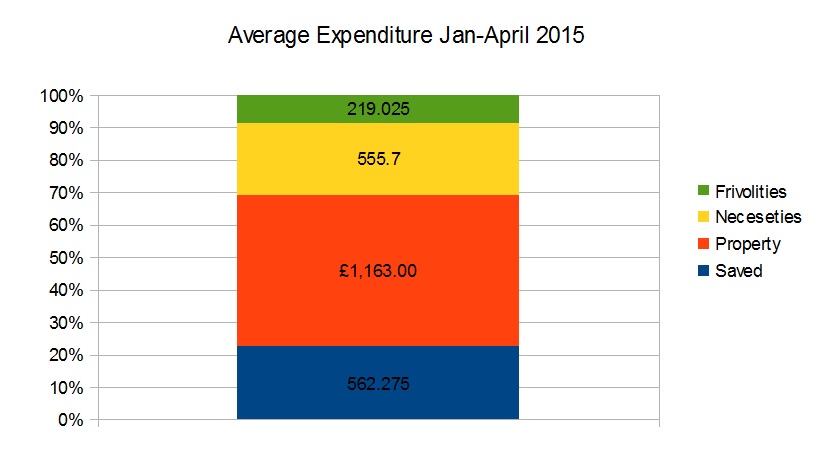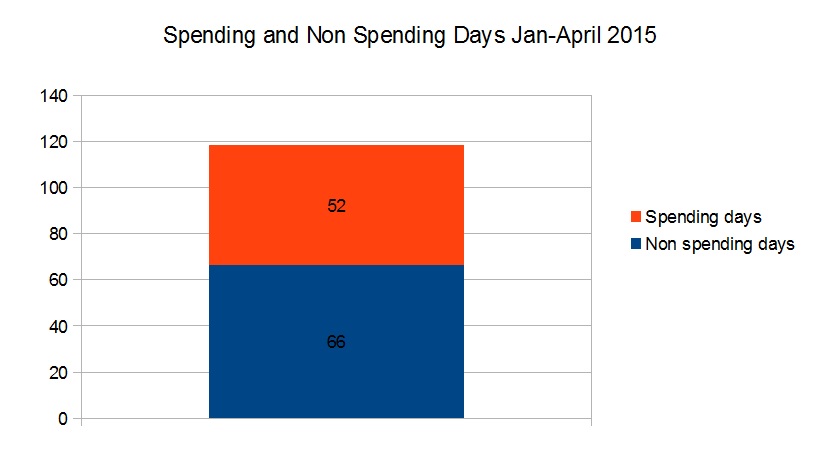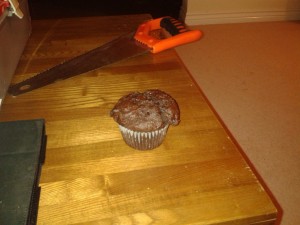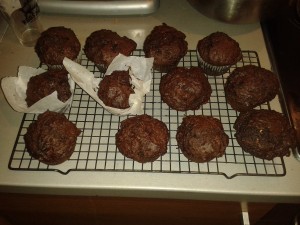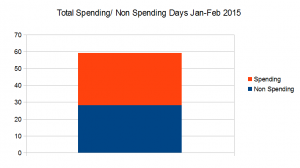This post is just a summary of this excellent book in which Thich Nhat Hanh does a wonderful job of reminding us just how simple Zen is. This post summarises Part One – Breathe: You Are Alive.
 Editor’s introduction
Editor’s introduction
Peace is every step.
The shining red sun is my heart.
Each flower smiles with me.
How green, how fresh all that grows.
How cool the wind blows.
Peace is every step.
It turns the endless path to joy.
Peace is not be sought externally, but in slowing down and enjoying each step, each breath.
Part One – Breath! You are Alive
24 brand new hours
Every new day we have the opportunity to live and spread peace. Peace is already with us, the question is whether we allow ourselves to realise this.
We are very good at preparing to live, but not very good at living. We have difficulty remembering to be present in this moment, which is the only moment there is to be alive.
This book is a wake up bell – a reminder that we can only be happy in this present moment.
The Dandelion Has My Smile
You should start the day with a smile, it is the source of all peace and happiness.
If you lose your smile, remember that the dandelion and others, all of those who support you in your efforts to be happy, are keeping it for you. If you remember this, all you need do is breath consciously for a while and your smile will return to you.
Conscious Breathing
Hanh has calligraphed the phrase ‘breath, you are alive’ onto a wall in his meditation room.
Breath unifies mind and body, doing so consciously brings us into this present moment.
Breathing and smiling are two very important things
To breath consciously just say ‘breathing in, I know I am breathing in. Breathing out, I know I am breathing out’.
Present Moment, Wonderful Moment
In our busy society, it is a great fortune to be able to breathe consciously. We can take a few moments to do this almost anywhere – at home, at work, commuting. This is a recommended meditation for beginners or someone with 50 years practice.
The basic practice is this – sit and say
Breathing in I calm my body
Breathing out I smile
Dwelling in the present moment,
I know this is a wonderful moment.
Or simply
Calming
Smiling
Present moment
Wonderful moment.
Our appointment with life is with this present moment, if not now, then when?
Thinking Less
Most of the time we think too much, and much of it is useless, as if we had a cassette tape going on in our heads.
Conscious breathing can give us a rest from this, because the above ‘mantra’ is just a tool of concentration, not thought.
After a few minutes CB we should feel quite refreshed because we regain ourselves.
It is important to be in the present moment, because the past in gone and the future not yet here.
Nourishing Awareness in Each Moment
Being in society we often feel harassed, our sense bombarded by all sorts of things. Hanh now has it in for TV –
‘Do you ever find yourself watching a TV program? The raucous noises, the explosions, gunfire are upsetting, and yet you don’t get up and turn it off. Why do you torture yourself in this way? Watching a bad TV program, we become the TV program. We are what we feel and perceive, so why do we open our windows to sensationalist productions made for profit? We are too undemanding of ourselves,, to lonely or bored to create our own lives. By watching TV mindlessly we allow others to guide us, we need to be more careful.
Of course I am not just talking about television, all around us every day there are lures set by our fellows and ourselves – how many times a day do we become lost and scattered by them?
We must be very careful to protect our fate and our peace. It is good to withdraw every now again, close our senses to the world and renew ourselves. (However, many of us find this scary.) At first we might withdraw to nature, or the forest, to escape the chaos of modern life and to clear our senses and this will help us to re-engage with ordinary life in a more controlled manner.
However it is important not to close ourselves off altogether, because there are many miracles outside.
Sitting Anywhere
You can practice conscious breathing anywhere, even just for a few moments.
Sitting Meditation
The lotus or half lotus position is best, if not a chair, or lying down.
We sit to cultivate mindfulness, peace and non violence, not to endure pain, so it is fine to adjust yourself if pain sets in. Occasionally combine sitting with walking meditation – basically whatever feels natural.
Do not use meditation to avoid confronting your problems, they will just return if not dealt with.
Meditation should be practiced gently but steadily throughout our daily life, not wasting a single moment to see into the true nature of life, including our every day problems.
Bells of Mindfulness
Every time you hear a bell, return to yourself, breathing in and out and smiling. Say ‘Listen, listen, this wonderful sound brings me back to my true self.”
Even non-sounds, such as rays of sunlight can return us to this wonderful, present moment.
Cookie of Childhood
This section starts with Hanh relaying how he used to eat Cookies very slowly. Eating slowly and mindfully is a most important practice.
The present moment is filled with joy and happiness. If you are attentive, you will see it.
Tangerine of Mindfulness
If I offer you a freshly picked tangerine to enjoy, I think the degree to which you enjoy it will depend on your mindfulness.
You can see everything in the universe in one tangerine (the tree, the roots, the earth, the blossoms, the wind, the sunlight). When you peel it and smell it, it’s wonderful. You can take your time eating a tangerine and be very happy.
The Eucharist
In a drastic way, Jesus was trying to wake up his disciples – When we eat, we should be mindful, when we see people we should be mindful. If we are mindful life is real in this present moment, if not then people are as ghosts.
Eating Mindfully
The Purpose of Eating is to Eat.
Before eating, set the table, breath and smile at each other. Not many people do this, but it is very important.
We should be appreciative of the food we eat when so many are starving in the world. Eating is a good opportunity to generate compassion.
We can eat silently, or talk, but only positive talk, nothing distracts from the simple pleasure of being in the moment and eating in friendship.
Washing Dishes
The idea that doing dishes is unpleasant can only occur when you are not doing them. The dishes themselves and the fact that I am here washing them are miracles!
If I am incapable of enjoying washing the dishes, I will be incapable of enjoying dessert, forever dragged into the future, never able to live in the present moment.
Each action done in the sunlight of awareness becomes sacred.
We do the dishes, not only to have clean dishes, but to do the dishes.
Walking Meditation
Walking can be very enjoyable. We walk slowly, alone or with friends. If possible in some beautiful place, walking not in order to arrive, but just to walk.
Shake off all worries and anxieties, not thinking about the future or the past, just enjoy the walking in the present moment.
If we walk in a hurried manner, we only sow seeds of anxiety. Instead, we should walk as if we are the happiest person on earth, planting peace and serenity.
While you walk, count your breaths, co-ordinate your breath with your paces, as many as you need, and if you want to stop a while and look around you.
Telephone Meditation
The telephone is very convenient, but we can be tyrannised by it. When we hear the phone ring it often causes some anxiety, and when we talk we often talk of trivial things and forget ourselves. We are victims of our telephone.
(Try replacing the word telephone with Smartphone and this is even more true.)
Next time you hear the phone ring say ‘listen, listen, this wonderful sound brings me back to my true self. Breathe and smile and be in control of yourself, for two rings, and then pick up the phone, in consciousness – then how fortunate for the other person. If you are both doing this, it transforms the whole experience.
Driving Meditation
We often don’t need to use the car, rather we use it as a means of escaping from facing up to ourselves. Hence this poem to help overcome this.
Before starting the car
I know where I am going
The car and I are One
If the car goes fast I go fast.
The message here is – wherever the car goes, my self goes, there is no escape. If we realise this, we may choose not to drive, and go for a meditative walk instead.
The car and I are one – the car is not an instrument which we control, when we drive, we become the car – with all its destructive powers.
We should also aim to be in the present moment rather than thinking about arriving – this way red lights won’t be quite as irritating.
When driving – if stuck in traffic, do not fight this, this is useless. When you see a red light, breathe and smile instead, use it as a chance to practice.
It is not just going for a drive which we use to distract ourselves from ourselves, from the pain of being alone with ourselves which we cannot stand – our culture offers us many things to distract us, to keep us busy.
Decompartmentalisation
Mindfulness should not just be something we do in the meditation hall. We should bring mindfulness into our daily lives, into every moment. We should practice smiling while cutting carrots, and in general be mindful when at work and in our leisure time. We need to discuss among ourselves how best to do this.
Breathing and Scything
Here Thay relays the time he bought a Scythe – he found that if he coordinated his breathing with his movements, and concentrated on what he was doing in an unhurried manner, he could work for long periods, if not he tired quickly.
He then says that he takes care to not tire himself by getting out of breath, he practices non violence on his body because it is just a means to an end.
One day an old man offered to show him how to use a Scythe and although more adept adopted a similar style to what Thay had taught himself. Every time he sees someone cutting grass with a Scythe he knows they are practicing awareness.
Aimlessness
In the West, we are very goal oriented, we know where we want to go, but along the way we often forget to enjoy ourselves along the route.
There is a word in Buddhism that means ‘wishlessness’, or ‘aimlessness’. The idea is that you do not put something in front of you and run after it, because everything you need is right here, in yourself.
Whatever we do we should do in an aimless way. The point of doing anything, is just to do it.
Often we tell ourselves don’t just sit there, do something. But in fact, the opposite may be more useful – don’t just do something, sit there! We need to learn to stop from time to time in order to see clearly.
This basically involves being mindful – which is the foundation of happiness. If we are mindful we can learn to take pleasure in the many miracles that we usually just take for granted.
We should appreciate more what we have – there are so many things in life which we do not appreciate because we are too busy trying to get somewhere else.
Our Life is a Work of Art
We have developed a habit of looking at things with the intention of getting something. However, this is wrong. Instead we should look at things just in order to be with them, with no gaining thought.
The point of meditation is just to be with ourselves and the world. If we are capable of stopping, we will see, and if we can see then we will understand.
When we do not trouble ourselves about living life as a work of art, if we just live each moment fully with no gaining thought, then our life becomes a work of art. When we learn to be peace then our life as art will truly flourish.
Hope as an obstacle
When I think deeply about the nature of hope I see something tragic. We need to abandon hope in order to fully realise the joy in this present moment. Hope is for the future, and although it can help us deal with the present moment, that is all it can do. Instead of focusing on hope for the future we should channel our energies into now.
A.J. Must said – there is no way to peace, peace is the way. Thus it should be with our life, don’t focus on doing something now in order to be happy, learn to focus on the moment and be happiness in what you doing.
Flower insights
Starts with the flower sermon: when someone holds out a flower to you, they want you to see it, but in order to see it you need to be fully yourself, not thinking about the meaning of the flower.
When you are really yourself then you can enjoy life in this present moment.
Breathing Room
We have a room for everything – but not for mindfulness, Every household should have a breathing room, where we can sit and start the day in meditation, or for reconciliation.
Hanh now imagines a scene where a husband and wife have an altercation, but instead of escalating the row, the husband withdraws to the breathing room, and sounds a bell. The wife feels better because she knows her husband is taking time out. The daughter who witnessed the slight altercation feels relieved and also goes into the breathing room, another bell sounds, which reminds the wife she should now go and join her husband and daughter. Now the whole family, by virtue of a bell and a breathing room are sitting in reconciliation.
Hanh rounds off by saying he knows of families where the children start their day with brief meditation sessions and that every household should have a breathing room.
Nice!
Continuing the Journey
This section of the book has been concerned with mindfulness practice, or how to be mindful in a variety of situations. Mindfulness is the cornerstone of a happy life. The next section deals with how to deal with unpleasant emotions.
